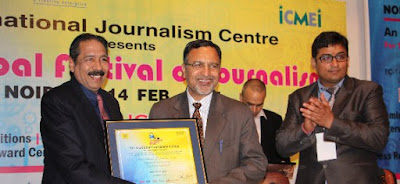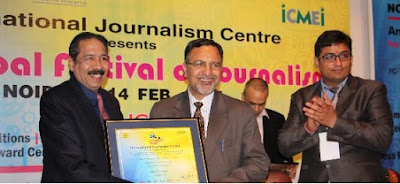Academic courses have almost taken a backseat, and professional courses are too much in demand. Kids these days are more informed and driven over passion. They would rather convert their passion to profession than letting it die a stale death. Of all the courses, journalism is one stream that students have chosen widely. Every year almost 10,000 kids appear for mass communication entrances, and the rising numbers have created a cut-throat competitive scenario out there. However, there are millions of questions that cross minds leaving them confused.
•Whether fees is affordable or not? This is an obvious question since these courses are a tad bit expensive. If your parents aren’t in a situation to pay the fees, try and look for education loans. Or maybe you can borrow money from a close relative and repay them in installments.
•Am I ready for 24x7? – Jobs in media line are dynamic. They are not stringent corporate jobs that go 9 to 5. Being a journalist is a “full time job”, and there might be days when you will go sleepless. But the rewards are endless. After all, pleasure comes with a price.
•Do I good need speaking skills? – Of course! If you are shy to go up on a stage, how will you interview people during talk show, or address the entire nation while covering breaking news. In journalism colleges in India you will get tons of opportunities to participate in debates, speeches, talk shows etc. Do not shy away from them. Develop leadership skills.
•Is brushing up general knowledge necessary? – Yes, it certainly is. Being a journalist you need to have an unbiased prerogative, yet in depth knowledge on various topics. You need to know what is happening, at least in your own country. You should also have the knack to cull out information from legal sources possible to position your story strongly.
And yet the most important question – should I follow my dream? Certainly, for dreams keep us alive. Start applying for mass communication colleges in India and do not look back.
•Whether fees is affordable or not? This is an obvious question since these courses are a tad bit expensive. If your parents aren’t in a situation to pay the fees, try and look for education loans. Or maybe you can borrow money from a close relative and repay them in installments.
•Am I ready for 24x7? – Jobs in media line are dynamic. They are not stringent corporate jobs that go 9 to 5. Being a journalist is a “full time job”, and there might be days when you will go sleepless. But the rewards are endless. After all, pleasure comes with a price.
•Do I good need speaking skills? – Of course! If you are shy to go up on a stage, how will you interview people during talk show, or address the entire nation while covering breaking news. In journalism colleges in India you will get tons of opportunities to participate in debates, speeches, talk shows etc. Do not shy away from them. Develop leadership skills.
•Is brushing up general knowledge necessary? – Yes, it certainly is. Being a journalist you need to have an unbiased prerogative, yet in depth knowledge on various topics. You need to know what is happening, at least in your own country. You should also have the knack to cull out information from legal sources possible to position your story strongly.
And yet the most important question – should I follow my dream? Certainly, for dreams keep us alive. Start applying for mass communication colleges in India and do not look back.













